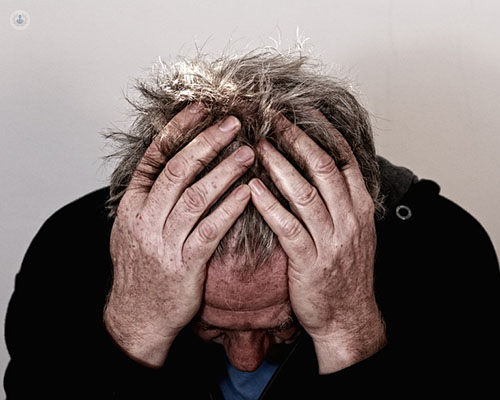Bipolar disorder: Everything you need to know
Written in association with:Bipolar disorder is a condition that can cause intense mood swings and periods of mania or depression. In his latest article, leading consultant psychiatrist Dr Edwin Ugoh answers some of the most frequently asked questions about this illness.

What is bipolar disorder?
Bipolar disorder is a mental illness that is characterised by mood swings, ranging from either very low to very high mood. Unfortunately, these swings can be quite frequent, and affect the patient’s quality of life.
What are the first signs or symptoms of bipolar disorder?
Signs and symptoms depend on the type of bipolar the person has. There are two types of bipolar disorder, bipolar 1 and bipolar 2.
People with bipolar 1 are prone to more intense or severe periods of mania. People with bipolar 2 are more prone to depressive phases of the illness. So, the first sign or symptom depends on what type of bipolar disorder you have got.
People with bipolar 1 are often energetic, hyperactive, and impulsive. They have poor sleep patterns. In some cases, they have an abnormal feeling of being extremely important, called monopsychosis. Some think that they can fly, or spend lots of money that they can’t afford to spend.
People with bipolar 2 usually have a very low mood, a low appetite, low energy level, and oftentimes they suffer from suicidal thoughts.

What causes bipolar disorder?
There are many risk factors that can lead to bipolar disorder. The most important is a family history of the condition.
There are a number of other risk factors, including:
- Substance abuse
- Stressful triggers
- Very poor sleep patterns over a number of years
How is bipolar diagnosed?
We diagnose bipolar by doing a comprehensive assessment of the patient’s timeline of difficulties right from the first time they had a problem up until they come for the assessment. This is done to try and find out if they fit the criteria for diagnosis. We look at their behaviour, their emotions, and their thinking to see if they fit into the bipolar diagnosis criteria.
We also use psychometric questionnaires. Once we have combined both the questionnaire and the assessment, that will give us a better idea of whether or not the patient has bipolar disorder.
How is bipolar treated?
Bipolar can be treated with medications and talking therapy. The type of medication depends on the type of bipolar the patient has. If the patient is suffering from bipolar 1, we give them what we call anti-manic medications. In the UK we mainly use anti-convulsant or anti-psychotic medication. If the patient is suffering from bipolar 2, we use antidepressants and mood stabilizers.
Ideally, patients would combine the medications with what we call “talking therapy”. We frequently use a type of therapy called cognitive behavioural therapy or CBT. This technique basically makes the patients aware of their illness and gives them the tools to manage it or live with it. It makes them aware of their thinking pattern and how that affects their illness, and how to use this to lessen the severity of the symptoms.

Does bipolar worsen with age?
There is no clear evidence that bipolar worsens with age. However, there is some evidence that shows that if the illness is well managed, and it was managed on time, they tend to get better. This means that the relapses become less frequent and shorter.
However, bipolar is what we call a chronic illness. So, it comes and goes, we're just trying to make sure that it doesn't come back frequently and that the symptoms are less severe.
How would a family member or a loved one help somebody with bipolar?
There are a number of support groups out there for family members of people living with bipolar. These groups can give the family members what we call psycho-education. This helps them understand bipolar disorder and how they can support their loved ones in terms of understanding and giving them the emotional support they need.
They also try to minimise the stigmatisation attached to the illness. With this knowledge, family members can be a valuable tool towards the recovery of a person with bipolar.
Dr Edwin Ugoh is a leading psychiatrist with over 25 years of experience. If you would like to book a consultation with Dr Ugoh, you can do so today via his Top Doctors profile.


